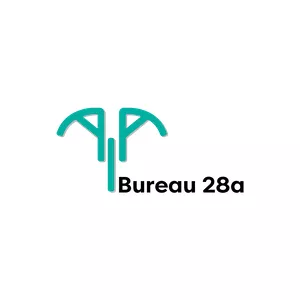Law No. 858-VIQ, dated 11 April 2023, On Power Industry [Electro-Energetics], is promulgated on 19 May 2023 taking effect as of 2024.
The Law will be implemented in three steps:
- initially, from the date of entry into force of the Law, 1 January 2024, through 30 June 2025, inter alia, management of electricity generation and transmission will be separated;
- in the second stage, from 1 July 2025 through 30 June 2028, the market operator (a separate legal entity under the transmission system operator) will be formed, management of electricity distribution and electricity supply separated, and purchasing of electricity from all generators (excluding those selling electricity to guaranteed purchasers under the existing Law, On Use of Renewable Energy Sources upon Electricity Generation) implemented, among others; and
- finally, starting 1 July 2028, the conditions the Law lists for a fully regulated market in the power industry, such as functioning of an independent market operator, will have been established.
As of the final stage date, the wholesale and retail electricity markets will have been established. The wholesale market will consist of: (i) the bilateral agreements market, (ii) centralized market, (iii) balancing market, and (iv) ancillary services market.
The Law introduces more than 40 concepts, such as an active electricity generator, balancing, regulator, market operator, electricity supplier, retail and wholesale markets, subjects of power industry and electricity markets, transmission and distribution system operators, renewable energy sources, and closed distribution network operator.
The Law proclaims the following key principles of the State policy in the power industry: (i) uniformity, reliability and safety of the electric power system, (ii) efficiency and transparency of management and regulation in the electric power sector, and (iii) creation of equal and non-discriminatory possibility to use the services of subjects of the power industry as well as of power network.
Consistently with the three-step introduction of the electricity market, enactment of the listed provisions of the Law is delayed until 1 July 2025 and 1 July 2028, respectively. As such, the electricity distribution and market operator's service tariffs, independence of electricity generator and transmission system operator, operation of the closed distribution network, introduction of free consumers (having a choice to procure electricity from any supplier) and non-free consumers (those satisfying their needs only from listed suppliers), and sale and purchase of electricity on the electricity market take effect as of 1 July 2025.
Further, the provisions of the Law (i) enabling the regulator to start permitting power industry subjects, establishing pricing and tariffs, and monitoring the market, (ii) enabling power generators to participate in the power market, (iii) enabling transmission system operator to commission functioning balancing and ancillary services markets, (iv) ensuring independence of grid operators and electricity suppliers, and (v) enabling functioning of the market operator take effect as of 1 July 2028.
The Law establishes conditions for the transition of the power industry, which nowadays is wholly owned by the State, based on the market principles. As such, it is opening up opportunities for investors in the industry.
Further, the Law establishes a framework to increase the number of players in the power market. Currently, the subjects of the market are the wholly state-owned generator and transmitter, Azarenerji JSC, and distributor, Azarisiq JSC, and electricity consumers. The subjects of the fully functioning electricity market will be the electricity generators, transmission system operator, distribution system operator, closed distribution network operator, market operator, supplier (wholesale and retail), and consumers (active and ordinary, free and non-free).
Generators of electricity from renewable energy sources have priority to access electricity transmission and distribution. Active consumers, i.e., entities and individuals generating up to and including 150 kW of electricity from renewable energy sources, may sell the excess electricity and participate in the balancing under the terms of the existing Law, On Use of Renewable Energy Sources upon Electricity Generation.
Activity of the centralized market of electricity will be organized by the market operator. The regulator, on the other hand, will be an institution that carries out the State regulation and control of generation, storage, transmission, distribution, and supply of electricity; its status will be determined by a separate law.
As of 1 January 2024, the existing Law, On Electro-Energetics, No. 459-IQ of 3 April 1998, will cease to have effect.
The content of this article is intended to provide a general guide to the subject matter. Specialist advice should be sought about your specific circumstances.

